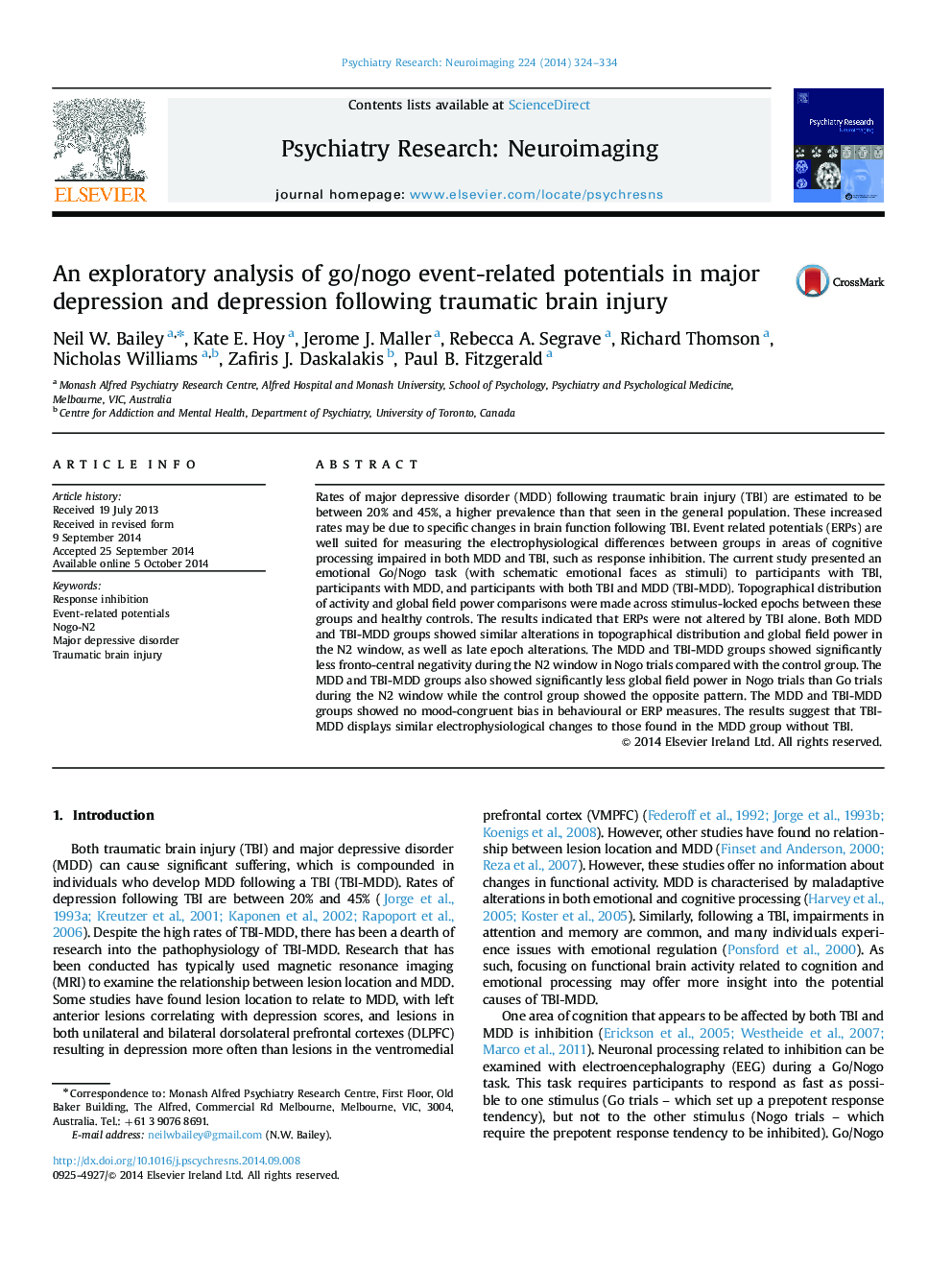| Article ID | Journal | Published Year | Pages | File Type |
|---|---|---|---|---|
| 334768 | Psychiatry Research: Neuroimaging | 2014 | 11 Pages |
•Response inhibition event-related potentials tested in depression and traumatic brain injury depression.•Depression and depression after traumatic brain injury groups show a reduced Nogo N2b neural response.•Depression and depression after traumatic brain injury groups also show an altered distribution of activity.•No event-related potential differences were detected between controls and the traumatic brain injury only group.
Rates of major depressive disorder (MDD) following traumatic brain injury (TBI) are estimated to be between 20% and 45%, a higher prevalence than that seen in the general population. These increased rates may be due to specific changes in brain function following TBI. Event related potentials (ERPs) are well suited for measuring the electrophysiological differences between groups in areas of cognitive processing impaired in both MDD and TBI, such as response inhibition. The current study presented an emotional Go/Nogo task (with schematic emotional faces as stimuli) to participants with TBI, participants with MDD, and participants with both TBI and MDD (TBI-MDD). Topographical distribution of activity and global field power comparisons were made across stimulus-locked epochs between these groups and healthy controls. The results indicated that ERPs were not altered by TBI alone. Both MDD and TBI-MDD groups showed similar alterations in topographical distribution and global field power in the N2 window, as well as late epoch alterations. The MDD and TBI-MDD groups showed significantly less fronto-central negativity during the N2 window in Nogo trials compared with the control group. The MDD and TBI-MDD groups also showed significantly less global field power in Nogo trials than Go trials during the N2 window while the control group showed the opposite pattern. The MDD and TBI-MDD groups showed no mood-congruent bias in behavioural or ERP measures. The results suggest that TBI-MDD displays similar electrophysiological changes to those found in the MDD group without TBI.
